From plant-based burgers and lab-grown meatballs to insect protein and cutting-edge alternative feeds, the meat industry is facing disruption like never before. Here is our pick of 15 exciting startups worth having on your radar

Impossible Foods
Founded: 2011
Based: Redwood City, USA
Employees: 250
Funds raised: $387m [Crunchbase]
What does it do? A meat-free burger made from wheat, potatoes and coconut oil that looks and bleeds like the real thing thanks to an iron-containing compound called heme.
Key backers & investors: Bill Gates, Open Philanthropy Project, Khosla Ventures, Google Ventures, UBS, Viking Global Investors and Horizon Ventures. A $114m funding round in April 2018 was led by Temasek and Sailing Capital.
Read more: Are plant-based patties really more sustainable than real burgers?
Why is it a disruptor to watch? Having raised nearly $400m, Impossible is the undisputed 800-pound gorilla of the plant-based burger world. Unlike rival Beyond Meat , Impossible has focused on foodservice instead of retail distribution and is now available in more than 1,000 restaurants across the US. It’s served at celebrity chef David Chang’s Momofuku Nishi and Traci Des Jardins’ restaurant Jardinière. The company says it will “share the Impossible Burger with the rest of the world in the coming years” and is set to launch in Asia later this year. However, the fact its heme is produced using GM technology could make expansion into some European markets challenging.
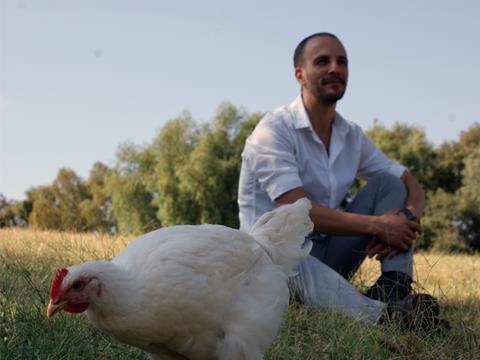
SuperMeat
Founded: 2015
Based: Rehovot, Israel
Employees: 10
Funds raised: $3.5m
What does it do? SuperMeat is developing lab-grown poultrymeat using a proprietary process that requires no ongoing use of animal cells.
Key backers & investors: Stray Dog Capital and New Crop Capital. Germany’s PHW Group, one of Europe’s largest poultry producers, became a strategic investor in January 2018.
Why is it a disruptor to watch? ‘Meat without the animal’ is an enticing prospect, but use of animal cells and serums to culture cells is controversial and a potential barrier to consumer adoption. SuperMeat’s process requires only a single biopsy and then allows for potentially indefinite production of meat products. “SuperMeat tackles the problems of mass-producing animal cells in scale from the get-go,” says CCO and co-founder Shir Friedman. “We have gathered the best minds in the field of biological manufacturing to make sure we won’t hit a wall with a product that isn’t scalable.” The backing of PHW Group, which will help SuperMeat expand into Europe in the future, proves this is a proposition big investors from the meat sector are increasingly taking seriously.
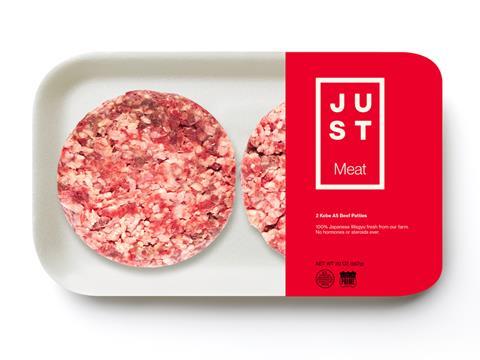
Just
Founded: 2011
Based: San Francisco, USA
Employees: 120
Funds raised: $220m
What does it do? Previously known as Hampton Creek, Just is best known for its egg-free mayonnaise, salad dressings and plant-based egg substitutes. Now it’s moving into ‘clean’ meat, with a rollout slated for the end of 2018.
Key backers & investors: Temasek, Mitsui, Founders Fund, Li Ka-shing and the Heineken family.
Why is it a disruptor to watch? Just is undoubtedly a heavyweight disruptor – and not afraid of a bit of controversy. It’s fought high-profile legal battles with Unilever and US regulator the FDA over its vegan Just Mayo, and was valued at $1bn in 2017. Whether it can replicate this success with lab-grown meat remains to be seen; the burger patties above are concepts only. But the startup is confident it can make lab-meat scalable. “With plants providing nutrients for animal cells to grow, we believe we can produce meat that is over 10 times more efficient than the world’s highest-volume slaughterhouse,” says a spokesman. “Our approach will be transparent and unquestionably safe, free of antibiotics and have a much lower risk of foodborne illness.”
Discover more of our Future of Meat content with a free 30-day trial

Entomo Farms
Founded: 2014
Based: Ontario, Canada
Employees: 40
Funds raised: Not disclosed
What does it do? Large-scale farming of free-range crickets (pictured, left) and production of insect-based snacks, protein powders and petfood.
Key backers & investors: Several angel investors. Canadian meat giant Maple Leaf Foods invested in the company in April 2018.
Why is it a disruptor to watch? Founded and run by three brothers with a passion for nature and sustainability, Entomo Farms is driving mainstream adoption of insect protein like few others. In March, the company struck a deal to become the official insect supplier of Canada’s largest grocery chain, Loblaw, launching a range cricket powder under Loblaw’s President’s Choice own label. A landmark deal with Maple Leaf Foods this month is set to boost the company’s reach and profile even more. “It will help further legitimise the insect protein category,” says co-founder Jarrod Goldin. “There are now some big companies entering this space.” As well as producing products under the Entomo brand, the startup also supplies insect ingredients to third parties, including UK-based insect snacks brand Eat Grub.

ChickP
Founded: 2016
Based: Rehovot, Israel
Employees: 3
Funds raised: $500,000
What does it do? ChickP has developed patented technology enabling the creation of a functional chickpea protein that can be used as a raw material for the production of meat alternatives and dairy replacements.
Key backers & investors: Agrinnovation, an investment company that commercialises agri-tech technologies generated by The Hebrew University of Jerusalem’s faculty of agriculture at Rehovot.
Why is it a disruptor to watch? Soy, pea and whey proteins are widely used in vegetarian and vegan foods, but there are growing consumer concerns about their sustainability, genetic modification, allergenicity and herbicide residues, says ChickP COO Shimrit Bar-El Dadon. “As a novel plant protein, ChickP protein can provide an alternative to other proteins sources, as the ChickP protein is safer, greener and healthier.” It also has a neutral taste and odour, making it suitable for use in a wide range of food and drink products. The startup says it is already in contact with several UK companies interested in using ChickP protein in their products.
Read more: Meat-free diets - fad or the future of food?
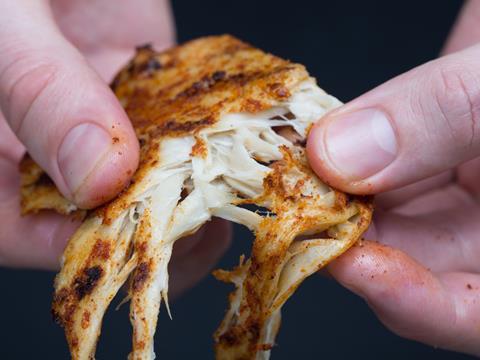
Ojah
Founded: 2009
Based: Ochten, Netherlands
Employees: 29 (excluding temporary and agency workers)
Funds raised: not disclosed
What does it do? Soya and pea-based meat substitutes with a fleshy structure and firm bite, sold as ingredients under the Plenti and Beeter brands.
Key backers & investors: Korys Investment Fund. Kerry Group will become a shareholder pending merger approval from the European Commission, in a deal reported to be worth just under €20m.
Why is it a disruptor to watch? “According to our customers, Ojah produces the best meat alternative, in taste and texture, worldwide,” says CEO Frank Giezen. It’s all thanks to a unique ‘clean-label high moisture extrusion’ technique that allows Ojah to produce wet texturised plant protein with a meat-like taste and mouthfeel. The range is also gluten-free and doesn’t contain additives. Ojah currently exports its products to more than 21 countries. With Kerry Group poised to come on board, that footprint is set to widen. “Kerry has established routes to market and a very strong global customer base,” said a Kerry spokesman when the deal was announced. “We see clear potential to grow the business and take it into wider applications.”

Memphis Meats
Founded: 2015
Based: San Francisco, US
Employees: not disclosed
Funds raised: $20.1m [Crunchbase]
What does it do? Memphis Meats is a cellular agriculture startup that is developing lab-grown meat.
Key backers & investors: Tyson Foods, Draper Fisher Jurvetson, Cargill, New Crop Capital, Richard Branson, Bill Gates.
Why is it a disruptor to watch? As its generous funding and lineup of backers suggest, Memphis Meats is considered the leading light in the ‘clean’ meat space. Most notably, meat giant Tyson Foods came on board as an investor through its VC vehicle at the start of 2018, in a move that was widely seen as a shot in the arm for the commercial prospects of lab-grown meat. “Our vision is for the world to eat what it loves, in a way that addresses today’s challenges for the environment, animal welfare and public health,” said Memphis Meats CEO Uma Valeti at the time. “We are accelerating our work and building out a world-class team to make this a reality.” The company has so far cultured a ‘clean’ beef meatball (pictured, left) and in 2017 unveiled lab-grown chicken and duck. It is aggressively recruiting to expand its team and scale up production.
Read more: How do plant-based burgers really stack up on sustainability?
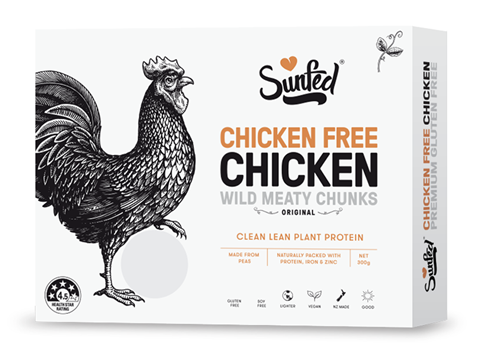
Sunfed Foods
Founded: 2015
Based: Auckland, New Zealand
Employees: not disclosed
Funds raised: not disclosed
What does it do? Chicken-free chicken chunks made from pea protein. Beef and bacon versions are in the pipeline.
Key backers & investors: Jeremy Coller of Coller Capital, New Crop Capital as well as angel investors from NZ, the US and the UK.
Why is it a disruptor to watch? In its home market, Sunfed has sold out consistently since launch, helped by a viral video emphasising its chicken-like taste and texture, and an enthusiastic following on social media. “New Zealand is known for producing very high quality protein and Sunfed stays true to that by offering consumers plant-based meat that has the best meaty texture on the global market, and with the cleanest most minimalist ingredient deck made from the humble pea,” says founder and CEO Shama Sukul Lee. Already stocked in the frozen aisles of Countdown and New World supermarkets, among others, in New Zealand, Sunfed is now ramping up production as it prepares to expand internationally. “The UK and New Zealand have a strong relationship, so the UK is one of our key target markets as we expand globally,” says Lee.
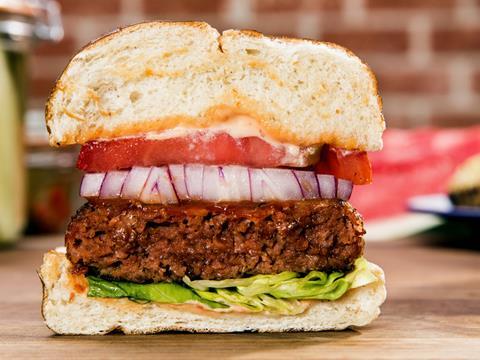
Beyond Meat
Founded: 2009
Based: Los Angeles, USA
Employees: 150
Funds raised: $72m [Crunchbase]
What does it do? Highly realistic plant-based meat alternatives made from yellow peas, with beet juice added for a dash of blood-red colour, the Beyond Burger is the brand’s halo product, but it also makes chicken-style strips and mince alternatives. A range of meat-free sausages is coming soon.
Key backers & investors: Bill Gates, Tyson Foods, Twitter co-founders Biz Stone and Evan Williams, Leonardo DiCaprio and former McDonald’s CEO Don Thompson. Honest Tea founder Seth Goldman became chairman in 2015. On 12 April, Germany’s PHW Group announced it had become a strategic partner to Beyond Meat to launch its plant-based burger in Germany and other European markets.
Why is it a disruptor to watch? With a glittering lineup of investors and plenty of media savvy, Beyond Meat has become the poster child of a new generation of meat alternatives. Unlike rival burger maker Impossible, Beyond Meat has focused on retail distribution, with wide listings in Whole Foods Market. A move to the UK has been rumoured for a while (with Tesco tipped as the most likely launch partner), though details have yet to be disclosed. When it does come to the UK, the Beyond Burger is likely to be merchandised frozen and not chilled, as in the US.
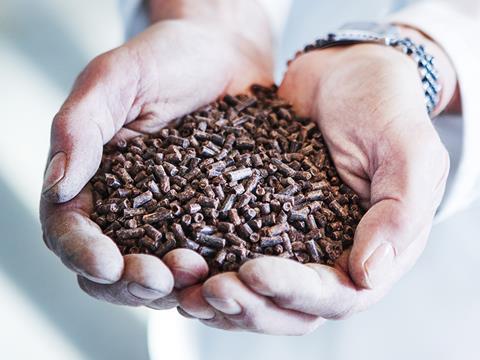
Calysta
Founded: 2012
Based: Menlo Park, US
Employees: 50
Funds raised: $85m
What does it do? Calysta is a biotechnology company that produces FeedKind, a methane-based feed for livestock, fish and pets.
Key backers & investors: Cargill, AquaSpark, Temasek and Mitsui.
Why is it a disruptor to watch? Feed is set to become an increasingly big focus in the debate about meat sustainability, as concerns about land and water use rise. Unlike traditional livestock feed, production of Feedkind requires no use of agricultural land and, says the company, “almost no water”. Instead, it relies on naturally occurring microbes that are fed methane gas, which they convert into protein. The technology behind FeedKind has been 30 years in the making and has seen more than $500m of investment. “Crucially, FeedKind’s production process is not affected in any way by weather events or variations in crops or harvests, providing extra security and confidence for the supply chain,” says a spokeswoman for the company. FeedKind has been approved for use in the EU, and Calysta operates a market introduction facility in Teesside that is already shipping trial quantities of FeedKind to customers.
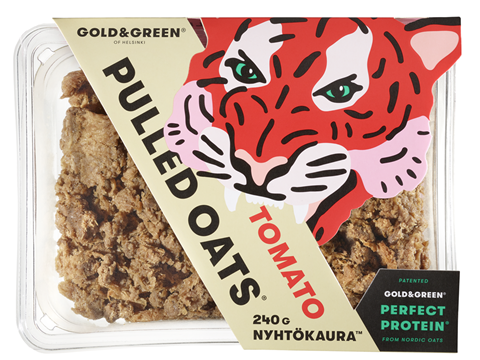
Gold & Green
Founded: 2015
Based: Helsinki, Finland
Employees: 60
Funds raised: Finnish food company Paulig acquired a 51% stake in Gold & Green Foods for an undisclosed amount in 2016. Gold & Green had raised over €1m million from private investors prior to that.
What does it do? High-protein meat alternatives with a Nordic twist. The company’s key product is ‘pulled oats’, a mix of oats and beans available in a range of flavours.
Key backers & investors: Finnish food company Paulig has been the majority shareholder since 2016.
Why is it a disruptor to watch? In a market dominated by soy and pea-based alternatives, Gold & Green is offering a unique take on meat substitutes with its range of oat-based products. The company’s key line is ‘pulled oats’, a mixture of oats and beans that can be used as an alternative to mince or as an ingredient in salads or sandwiches. ”We started out to find an alternative to daily cooking with meat and developed pulled oats – the perfect protein consisting of oats and beans,” says a spokeswoman. ”It is based on Nordic ingredients and the team’s unique scientific knowledge.” The company says it hopes to launch its products in the UK “in the near future”.
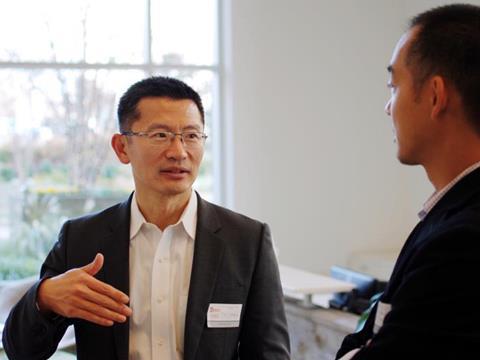
Dao Foods
Founded: 2018
Based: Shanghai and Beijing, China
Employees: undisclosed
Funds raised: Seed money only at this stage (amount not disclosed)
What does it do? Dao Foods is a cross-border venture that aims to tackle the environmental impact of China’s growing hunger for meat by making more (and better) meat alternatives available to Chinese consumers.
Key backers & investors: Dao Ventures, Moonspire Social Ventures and New Crop Capital.
Why is it a disruptor to watch? ”We have great concern that rising incomes in China will lead to significantly more demand for meat, causing further health and environmental consequences,” says a Dao Foods spokeswoman. Precisely what this means in practice remains to be seen - the venture has only been going for a few months. However, the ambition is to work with businesses, investors, NGOs and governments to drive change around protein consumption, says Dao. ”As China’s food system continues to evolve alongside its economic growth, we see an amazing opportunity to help chart a course that will be better for health and better for the planet.” With the Chinese government already planning to cut its population’s meat consumption by 50% by 2030, as it seeks to tackle growing problems with obesity and diabetes, the opportunity for meat alternatives in this fast-growing market looks set to be considerable.
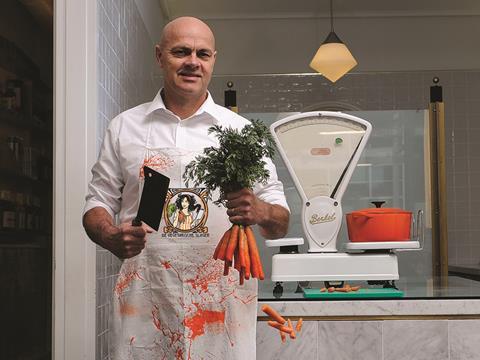
The Vegetarian Butcher
Founded: 2010
Based: Breda, Netherlands
Employees: 40
Funds raised: €10m
Key backers & investors: Private investors who bought €2.5m in bonds and Triodos Bank.
What does it do? Innovative plant-based meat and fish substitutes with life-like taste and texture, which are sold through dedicated Vegetarian Butcher stores in several European countries as well as third-party retail chains. The company has also partnered with Waitrose to supply the meat alternatives for its new plant-based range of ready meals, and has just opened its own restaurant in The Hague, called De Vleesch Lobby (‘The Meat Lobby’).
Why is it a disruptor to watch? Founded by ninth-generation farmer Jaap Korteweg, the Vegetarian Butcher is one of the most entrepreneurial forces in meat alternatives and plant-based living today. From eye-catching branding to high-profile supermarket partnerships and now its own restaurant, the company is on a mission to make plant-based alternatives palatable to meat lovers. ”It is our ideal to have meat enthusiasts experience our products and have them realise they don’t have to miss out on anything if they take meat out of their diet for one or more days,” says a spokeswoman. ”That is why we always try to capture the flavour of real meat and why we characterise ourselves as an entirely new generation of meat and fish substitutes that are, according to top chefs and culinary journalists, indistinguishable from the real thing.” Having partnered with Waitrose for its UK launch, the Vegetarian Butcher already has its eye on further opportunities. ”The ready meals we’ve launched perfectly fit our ideal to have meat enthusiasts experience meat-free products,” says the spokeswoman. ”At the moment we are talking about more potential rollouts in the near future.”
Read more: 12% of Brits now consider themselves ‘meat-free’, research by The Grocer shows
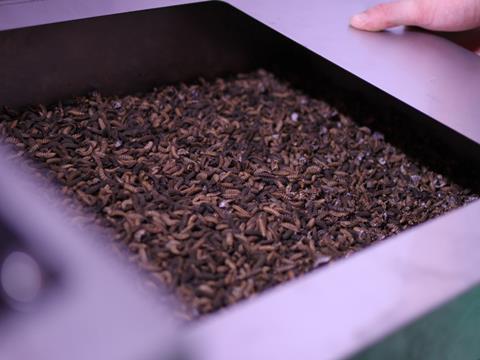
Entocycle
Founded: 2017
Based: London, UK
Employees: 15
Funds raised: £2.5m
What does it do? Entocycle turns waste food into insect-based protein that can then be used as feed for animals.
Key backers & investors: Seed accelerator Y Combinator, best known for its investments in Airbnb and Dropbox.
Why is it a disruptor to watch? Current feed production is highly resource intensive, creating an urgent need to create more sustainable alternatives. Entocycle’s vertical farming system allows feed protein to be produced in a way that’s 8,000 times more land-efficient than growing soy, claims the startup. ”Our technology can be used to produce protein hyper-locally, anywhere in the world and for 365 days of the year,” adds head of marketing and communications Jude Bliss. The startup is initially targeting the UK salmon industry, but wants to target poultry producers in due course.”EU legislation is likely to change in 2019 to allow insect protein to be used to feed poultry,” says Bliss. ”Ultimately, we want, and the planet needs, this to be a global movement with global impact.”
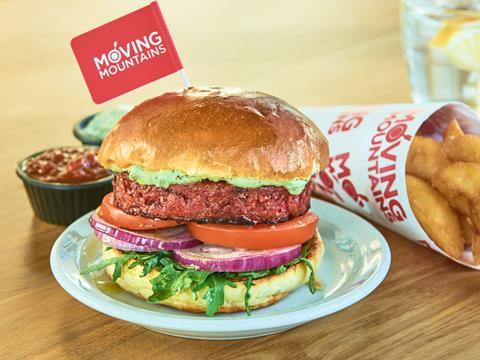
Moving Mountains
Founded: 2017
Based: London, UK
Employees: not disclosed
Funds raised: not disclosed
What does it do? A raw plant-based patty, called the B12 Burger, that ‘bleeds’ like meat and is made from mushrooms, beetroot juice, pea, wheat and soy protein as well as coconut oil.
Key backers & investors: not disclosed
Why is it a disruptor to watch? In a category heavy on innovation from overseas, this is a homegrown take on the plant-based revolution. Founded by Simeon van der Molen, who also created the Ecozone brand of cleaning products, Moving Mountains launched into foodservice at Mildreds Dalston in February 2018, with a nationwide launch planned for later in the year. ”We are also speaking to a number of international vendors as well as retailers in the UK and abroad so watch this space,” adds van der Molen.







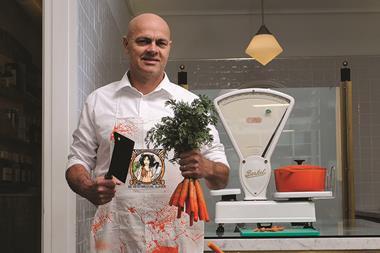
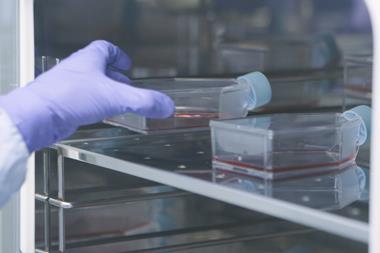
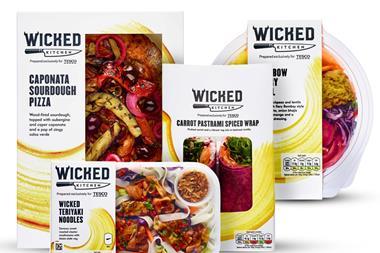
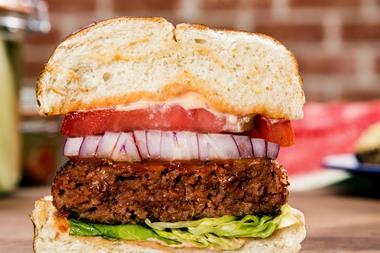
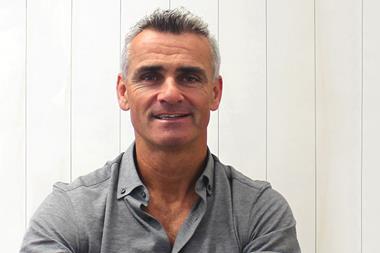







No comments yet